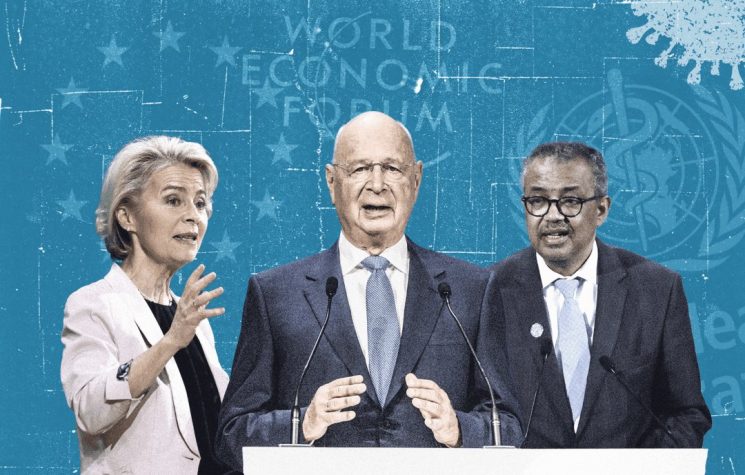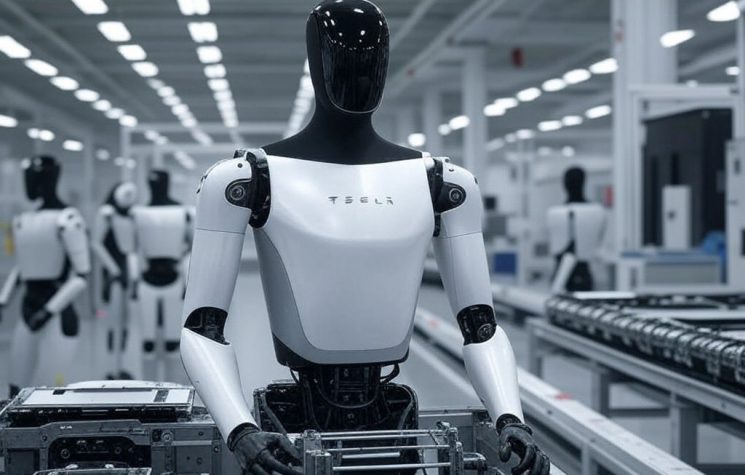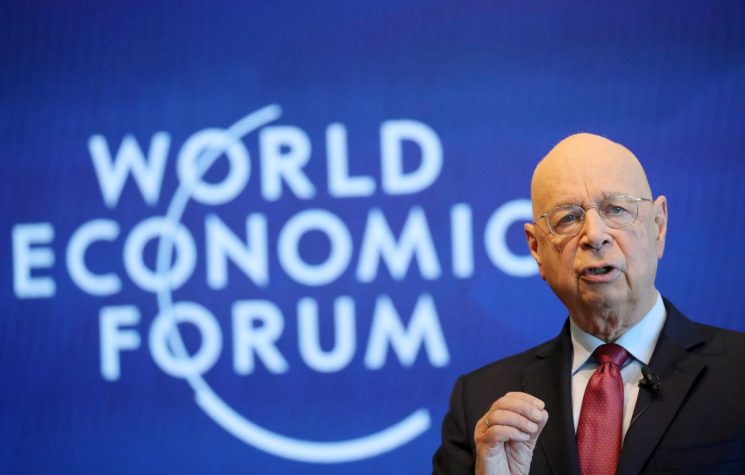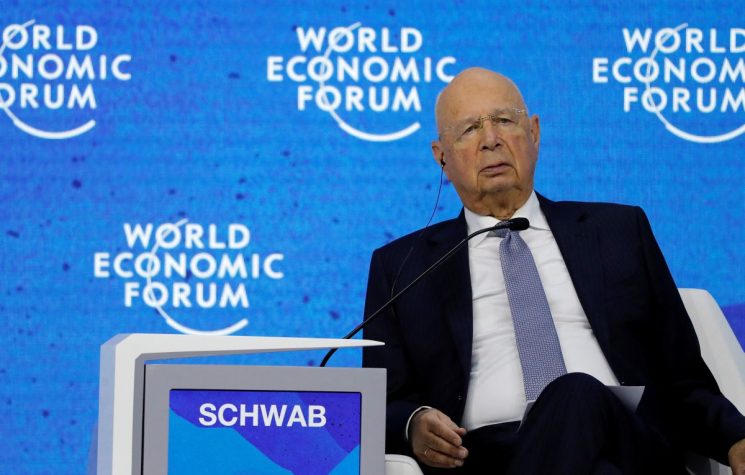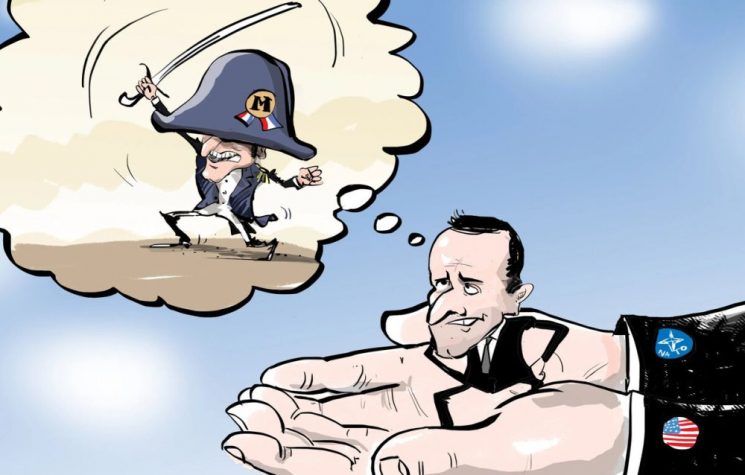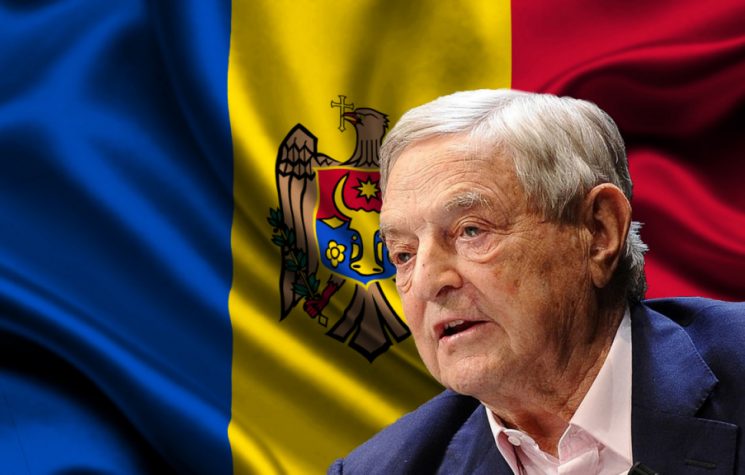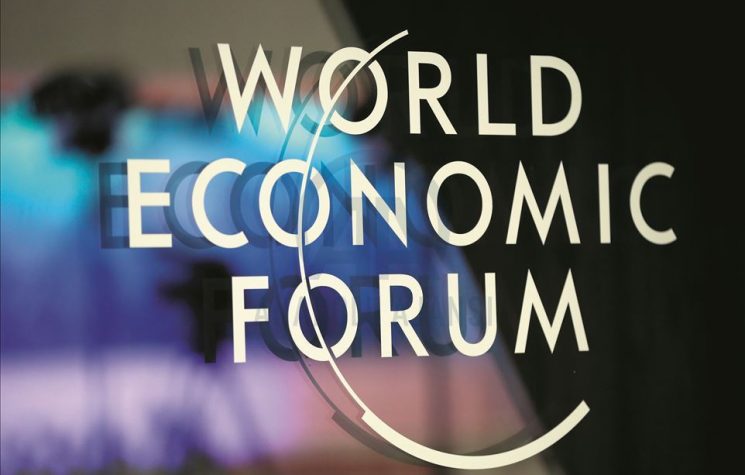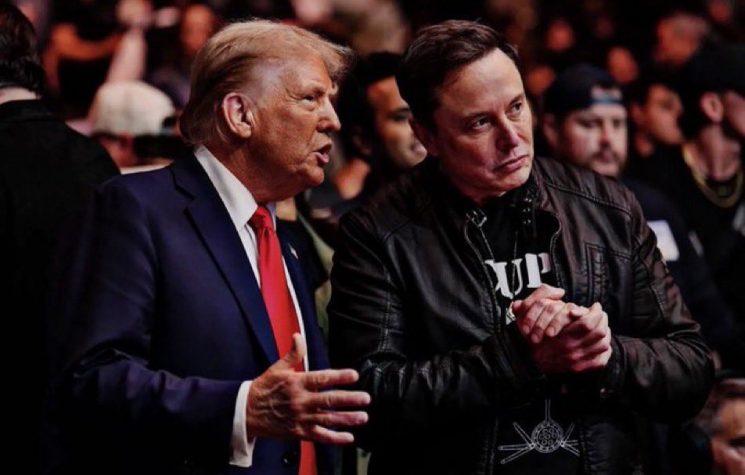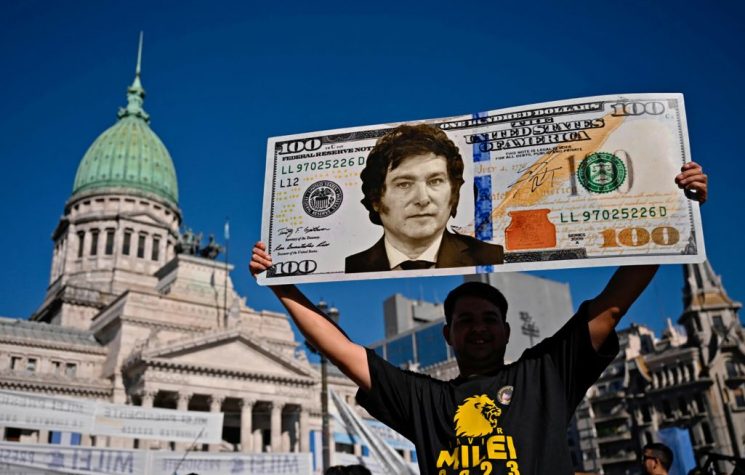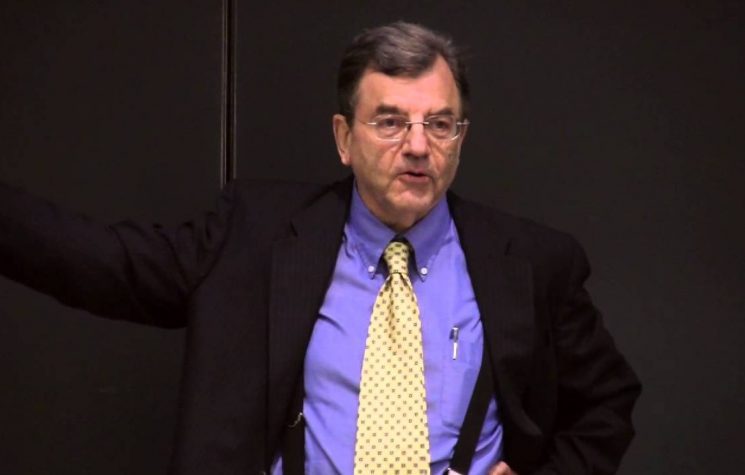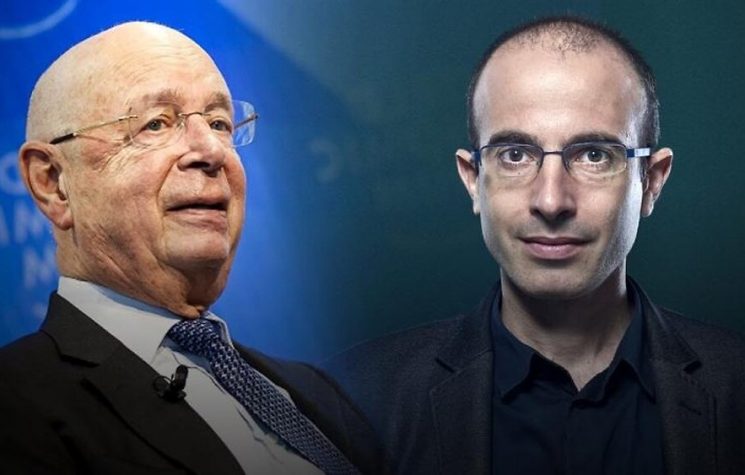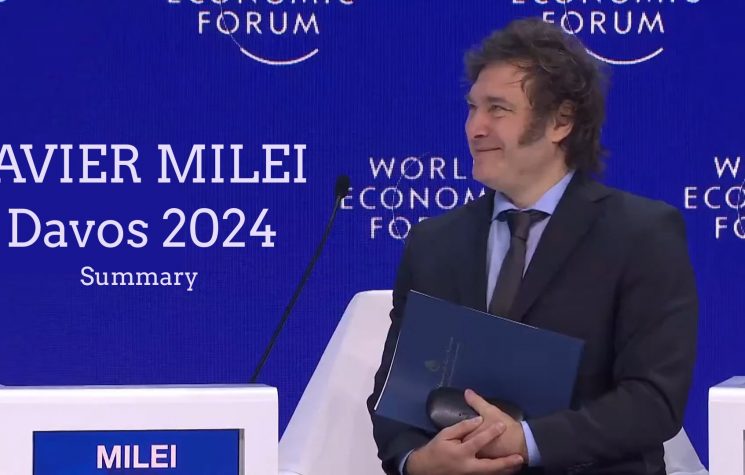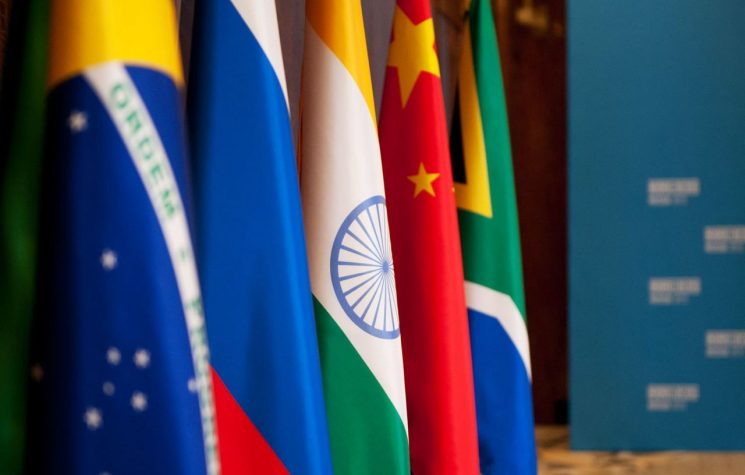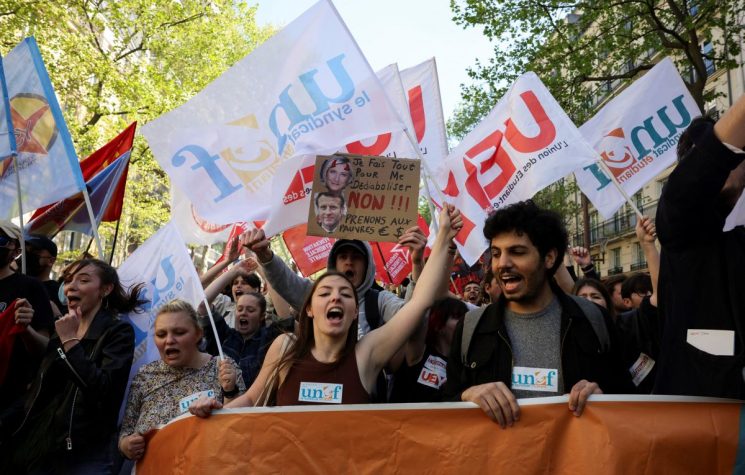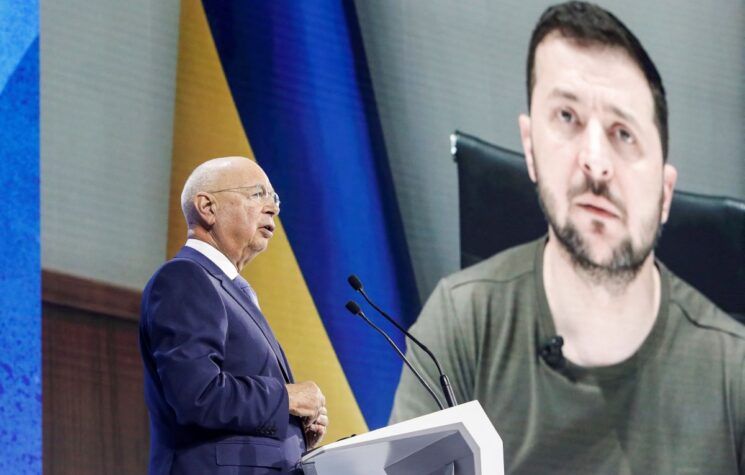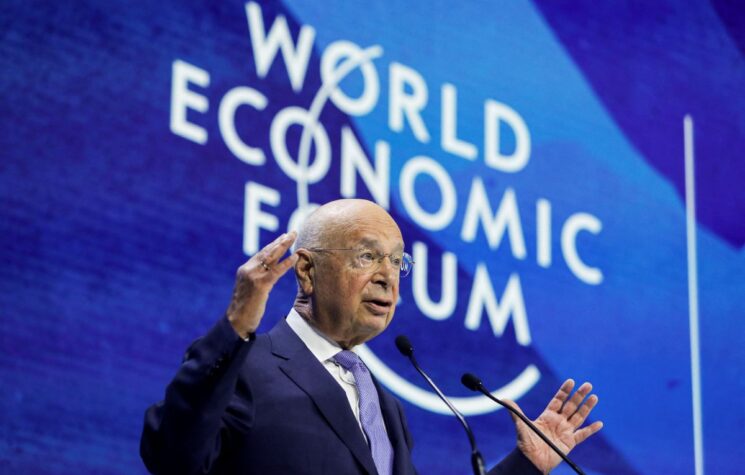The rising technocratic dystopia may appear to carry forward the legacy of social-democracy, though perversely, and therefore the utilization of Green parties and social-democratic parties in Europe to implement these is both predicted and rational.
There are two men named Klaus Schwab, no doubt.
One man named Klaus Schwab is seen by the true-believers, fachidiots, the liberal intelligentsia, the institutionally refined population, as a man who deeply cares about humanity. It seems they believe his warnings to be earnest even if uncannily and strikingly prescient. The World Economic Forum after all, must have been established out of great concern for humanity since it is propped up chiefly by the most humane institution in human history, the International Monetary Fund. This Klaus Schwab is a humanist.
So perhaps this is precisely the case for the true-believers; those who accept at face value the new Schwabian ‘distinction’ we are asked to appreciate between a shareholder capitalism and a capitalism 2.0, a stakeholder capitalism.
Then there is a second man named Klaus Schwab, who is seen by the rest of the world and the thinking people within it, for the monster that he is. A grimacing Klaus Schwab who appears on smartphone and tablet screens to warn of impending doom, no going back to normal, new pandemics which will strike very soon, and a wave of cyber-attacks. This Klaus Schwab is a terrorist at large, a character who like Dr. Fauci and Bill Gates appear like a central casting dispatch of Bond villains.

For people who haven’t traded in basic social intelligence for social credit realize that if the person who is issuing warnings of catastrophes is best friends with the very same people who will go on to create those catastrophes, those aren’t warnings. Just like for Fauci who said in 2017 that a massive pandemic would strike within Trump’s term. Those are not warnings, they are threats. Schwab is the one delivering the threats; Schwab is the terrorist.
Why is it so hard to understand that the WEF only does what’s in the interest of the IMF?
How are we to understand shareholder capitalism from stakeholder capitalism?
The idea of ‘socially responsible’ capitalism isn’t a new one. It represented the centrist wing of fascism some 90 years ago; it is to wit the embodiment of the last century’s corporatist and technocratic ideal until about the 1970’s with the introduction of Friedmanism. In that sense, we can say that the U.S. and EU existed on two separate trajectories, with more of the underpinnings of the EU based in the idea of social responsibility in the board room.
In our past work in the section on corporate ideology and the state in The Great Reset Morality: Euthanization of the Inessentials , we discussed the bifurcation of the corporatist idea of social good, a type of stakeholder capitalism that existed alongside progressivist ideas. These were trumpeted as reasons that socialism was not necessary, since what was good for corporations was also good for society because these industrialists needed strong communities to create stable conditions, well paid workers to buy the products they produced. This was the era of capitalism before globalization. We also had believers in this ideal, like Henry Ford.
Then came a new idea, increasingly prominent in the American discourse into the 1980’s – where only the bottom line mattered. We can say that the Friedman period that had crept into culture in the 70’s had finally hit mainstream.
But ultimately, the old idea of social capitalism has come back in a new incarnation, a new branding, from the WEF – stakeholder capitalism and capitalism 2.0.
A critical difference that cannot be underscored enough, however, is that there is no long-term plan for the ISA (Ideological State Apparatus) of stakeholder capitalism. They simply use the term ‘capitalism’ to maintain social and ideological continuity from the present incarnation of monopoly capitalism. But the aim is to manage a strictly post-capitalist society. This is however not the one envisaged by the left, but rather one which develops new coercive and depopulating technologies along a misanthropic path towards the transition of the plutocracy into a technocracy.
Its true believers who assume that people are good when they say good things and make good promises, and entirely ignores centuries of peoples’ history or any insights into political and social theory: as Lord Acton, the British historian said: “All power tends to corrupt; absolute power corrupts absolutely.”
There is a reason we are seeing a resurgence of this old type of corporate ideal. As sovereign governments and democracies cease to exist, then the Friedmanian concept of externalizing costs which is unshakably a part of the present paradigm, can no longer be the official ideology of the ruling class.
In truth, they must maintain this cost-externalizing view, which is the foundation of and explanation for their misanthropic scheme. Paradigms are not shaken this way, they tend to crash and burn along with their adherents. This gives rise to what Pareto has called the rotation of elites. So, we can see that the present ruling class does not really embrace any change of tact. Rather, they see it as a new demagoguery.
And so we superficially see ‘stakeholder society’ embraced by a new ruling technocracy especially in light of automation and the fact that most of the human population will be a surplus and redundant one. Naturally, a shareholder society must give way to talking points about a stakeholder society.
And so we are asked to imagine that there is a revolutionary difference between the ‘old’ Friedmanian concept of the shareholder run society, is the new stakeholder run society. This happy talk began a few decades ago, when we were asked to embrace a ‘Capitalism 2.0’, capitalism with a friendly face, and so on. That has been the official ideology of social democracy in the post-war era, and for these reasons we see the European moderate left (what in the U.S. would be misframed as ‘far left’) can get behind the Great Reset agenda provided they ignore the actual needs or labor, whether organized or not.
The Great Hypocrisy of the Great Reset
The two men named Klaus Schwab are both voices in his reader. Any apparent focus on humanity, inclusion, improving living conditions, controlling the power of corporations in Schwab’s book ‘Covid-19: The Great Reset’, is cant lip-service to curry to the liberal-idealist segment of the institutionally refined population.
The WEF hosts forums on ‘Combatting Global Poverty’, and publishes reports like ‘Poverty: the past, present and future’. As the primary think-tank of the IMF, it should come as no surprise that the actual aims of the WEF are to provide progressive cover for the upwards redistribution of capital to the same lending institutions which they serve, while disguising this through the reversal and bifurcation of the language in the Orwellian sense of ‘doublespeak’. And it has been the concentration of capital along upwards distribution vertices – real capital flight – that is chiefly responsible for global poverty.

The World Economic Forum presents an upside-down world, one where their policy briefs and white papers voicing concerns about poverty are working in harmony with the IMF’s upwards distribution schemes. Reduction of the local power of sovereign states are framed as ‘anti-corruption’ and ‘transparency’. The austere reduction in access to health and human services in developing countries are viewed positively as economic growth indicators, despite the high causal direct relationship between austerity (via structural adjustment) and poverty.
They present the developing world’s compliance with global governance, i.e. stability, as directly related to poverty eradication – when in reality these two vectors are inversely related.
To wit, the more that countries comply with structural adjustment schemes, the more difficult it actually is to overcome poverty. The IMF had until now oriented its work towards geopolitical and geoeconomic monopolarity, with its own Trans-Atlantic hub as the loci of power.
Now it appears that the IMF and its Trans-Atlantic hub have given up on their aim of re-establishing their monopolar moment of the 1990’s.
It is true that many countries have made strides in overcoming poverty – this has been accomplished by struggling against the IMF, and creating alternatives to the IMF like BRICS. This is not to say that the countries behind BRICS are well intended, but that intentions here have little to do with the net benefit to borrowing countries introduced by the mere fact of a competing interest.
Klaus Schwab’s book ‘Covid-19: The Great Reset’ is written in an identical fashion: lamentations over economic crisis faced by populations are better read as exaltations. Descriptions of a dangerous process of dystopia formation in that book, openly referring to ‘The Handmaid’s Tale’, ought to be read as actual ‘solution’ traps in the works.

Mock Execution of Handmaids from the Dystopic drama series, ‘The Handmaid’s Tale’ – referred to in Schwab’s ‘Covid-19: The Great Reset’
In Klaus Schwab’s book ‘Covid-19: The Great Reset’, any potential ‘abuses’, ‘crimes’, and ‘dystopic futures’ arising from the social policies of the Great Reset, are contemplated or at least mentioned. In The Macro Reset chapter, section 1.6.3, subtitled ‘The Risk of Dystopia’, (pg. 167) for example, nightmarish visions like television’s ‘The Handmaid’s Tale’, ‘Black Mirror’, and the critiques of data mining and surveillance in ‘Surveillance Capitalism’, by Shoshana Zuboff, are discussed.
These dystopias are acknowledged as analogous to real and potential outcomes of the legislation and corporate policies that populations will suffer and endure at the hands of corporate and government policy as a result of the Great Reset.
On full display here in microcosmic form, is the entire ISA (Ideological State Apparatus) of the technocracy and, for some decades, neo-liberalism itself – through the parties of the 2nd International, through the NGOs of Soros and U.S.-AID and the NED, etc., ad infinitum.
Two Men Named Klaus Schwab
Schwab must be understood as a sort of Dr. Mengele of organizational psychology, and also ideologue for a new system which uses trauma – terrorist acts and terrorist threats – to introduce a new acceptance of reality in a horrific parallel to Max von Sydow’s character Dr. Naehring in Shutter Island.
Trauma is the point of entry, and prior crimes which have been made against humanity can be warped through this trauma into being crimes that humanity has made itself, and must now pay for and very dearly. The crimes of the ruling class against people are changed into crimes that the people have made and that the ruling class – the stakeholders (governments, NGO’s, institutions) must now correct. And the corrective measures will be punitive and disciplinary in nature.
Because the progressive ideology (modernity’s ISA) recognizes its present defects, it attempts to divide itself from the actual system it supports. It can be both the legitimating ideology of a system, and the primary critic of that system towards an improved future system. It legitimizes itself today based on things it promises can be fixed in the future.

Max von Sydow’s character ‘Dr. Naehring’ from the 2010 psychological thriller, Shutter Island
The WEF does not really need to listen to and hear the population’s actual problems, it can rely on an academy filled with professional critics which the system’s own academies produced, which use a concoction of ideology and speculation to synthesize something resembling a recognition of the population’s problems. This created the illusion that the system was pluralist, when it was practicing a high form of demagogic social psychology and sociology.
The technocracy of the modern plutocracy, as it transitions to a new kind of oligarchy, is similar to fascism in that it takes many of the tropes and discursive framings of anti-capitalism and social justice but in a way that punches downwards as fascism-in-power did, and weaponizes them in the interests of the decidedly anti-social and unjust technocratic leviathan.
The technocracy is different from fascism in that it uses the actual left, and clearly not the populist right. This is evidenced in Trumpism in the U.S. or Le Pen in France, whose base opposes the lockdowns, mask and vaccine mandates, business closures, and prison-like quarantines of the Covid-19 Great Reset. Here, the rising technocratic dystopia may even appear to carry forward the legacy of social-democracy, though perversely, and therefore the utilization of Green parties and social-democratic parties in Europe to implement these is both predicted and rational.
Worse still, center-right parties are also part of this scheme, and when they also move in lockstep with the Great Reset agenda, they can even receive positive press from the center-left (cultural left) establishment media which defines most of European and Western media at present.
And yet again, these are all political parties that, with the rise of neo-liberalism and globalization, in the aftermath of the destruction of the USSR, have for three decades (or more) taken up the mantle of corporate-public synergy – in the actual tradition of various fascisms, while not acknowledging so.
To refine this point with clarity: fascism and social democracy share a nearly identical conception of political economy (corporate-public synergy). If fascism is social democracy without pluralism nor a liberal conception of human rights – or rather – if social democracy is fascism but with pluralism and a liberal conception of human rights – then the technocracy founds itself on that shared political economy of fascism and social democracy as a starting point, merely paying lip service to pluralism and liberal conceptions of human rights while in fact using a fascist method of undemocratic and anti-pluralist governance. That is why we have two men named Klaus Schwab.

A July 15th 2021 Newsweek clipping shows that the movement against the 2030 Agenda is framed as ‘right-wing’.
Adding to this, the social media corporate technocrats who are committed to the Great Reset, use the imaginary threat of ‘the far right’, and now ‘vaccine hesitancy’, to pursue a censorship policy indistinguishable from totalitarianism (of either far left or far right).
In viewing the cynical perversion which is Klaus Schwab’s Great Reset text, his criticism of the very system he is developing within the very same book which touts its merits and inevitability, is so as to absorb, bureaucratize, professionalize, manage, subsume, and overtake actual criticisms of the emerging dystopia, as a form of ‘self-criticism’. The end-notes are filled with references to articles by authors and thinkers who are opposed to the rising technocracy, which the World Economy Forum exists solely in service of.
This gas-lighting ‘self-criticism’ is a method of control by the system over potential criticisms of the system. It is a contrived criticism, managed by the system and in service of the system, as it marches forward with those very same features being criticized, nonetheless.
Because regular people no longer possess political power in systems where corporate rule has replaced constitutional republics, the devastating costs will be pushed downwards.
For these reasons we can see that there are two men named Klaus Schwab.












